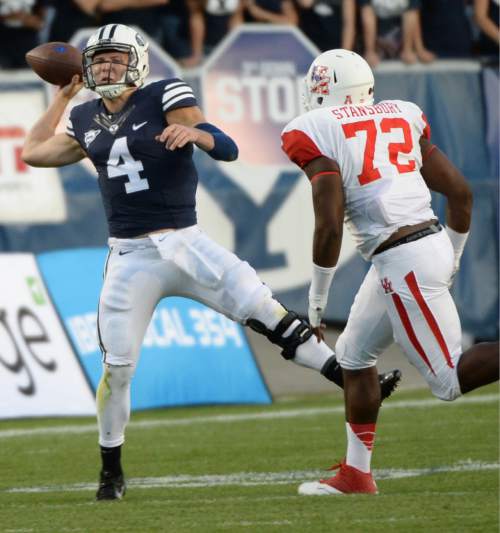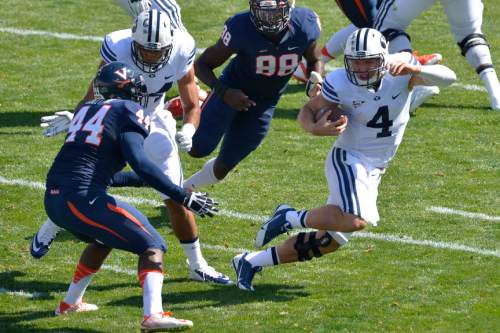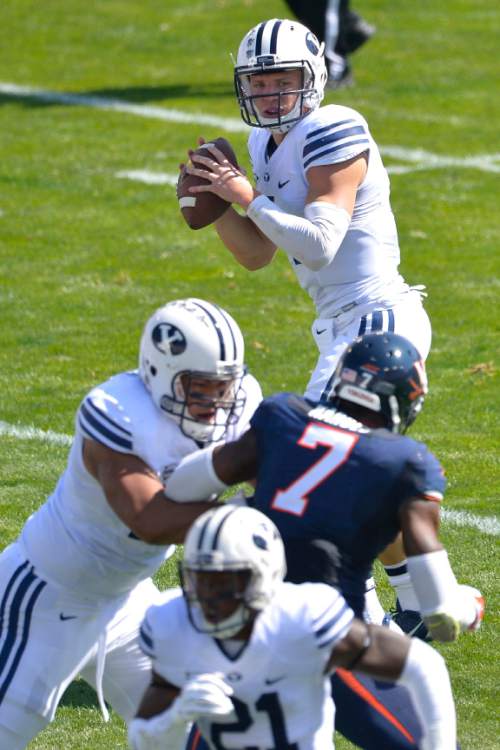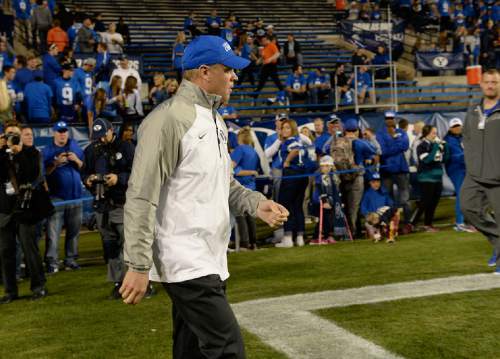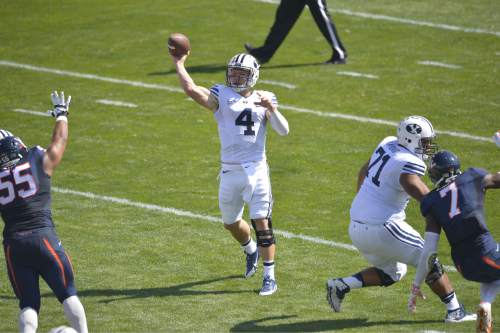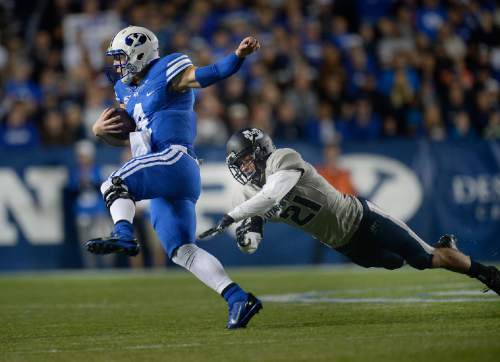This is an archived article that was published on sltrib.com in 2015, and information in the article may be outdated. It is provided only for personal research purposes and may not be reprinted.
BYU is offering more money for cost of attendance than all but 10 percent of football programs around the country. Why?
It's either because … a) hamburgers and clothes and video games and phones and computers and travel and fun in Provo cost more than they do in 90 percent of other college communities or … b) the Cougars' program is eager/desperate to lure in the kinds of athletes it is missing out on, the ones necessary to make big-time football a winning proposition for the school.
The correct answer is … well, you know.
There is another way to accomplish the same goal, one that is broader, deeper, more fundamental and basic than handing out a few extra bucks.
It's also a tad revolutionary.
It is this: Widen the recruiting base to the point where it is more inclusive of players from various backgrounds, soften the Honor Code to the point where it provides allowance and forgiveness for students who make mistakes or stray off, change the perception of the university to the point where the hard bubble that covers it bursts.
That can happen to the benefit of BYU football and BYU the school without coaches recruiting scofflaws and criminals and evildoers. It can happen without BYU selling out.
It can happen by admitting people who are gifted at what they do, people who have great potential for accomplishing great things and living great lives, even if they aren't necessarily Eagle Scouts or Seminary graduates or the picture of what administrators want for a future son-in-law.
There's no telling what imperfect people with imperfect backgrounds might be able to learn and gain at BYU and what BYU might be able learn and gain by having those kinds of people as a part of its suddenly more vast realm.
That goes far beyond sports, but it certainly is true for BYU's football program.
To reiterate, I'm not talking about recruiting renegades, predators and desperados simply to win games. I'm talking about being more inclusive to bring in well-intentioned, good-hearted young people who want to live honest, productive lives, but who might, at times, struggle with the Honor Code, as it currently is written out and enforced.
Put another way, I'm talking about doing what LaVell Edwards did.
That's not hypocrisy. It's working with athletes and — more broadly applied — students who haven't quite reached a standard of absolute perfection, or perceived perfection, that the current Honor Code seems to expect.
One of the finer things great football teams accomplish is taking a group of diverse individuals, from different frames of reference and mindsets and at various stages of progress and maturity, and molding them into a functioning unit that plays together, sweats together, works together, learns together, suffers together, overcomes together, achieves together to earn some great goal, some great reward.
The same can be said, on a personal level, for growing boys into men.
Teach them, work with them, advise them, cry with them, extend an open hand, not a clenched fist, to them, forgive them, celebrate with them, win with them. Don't scare them away or make them sign some agreement that almost every human being — including Mormon kids — will break in some way or another, and then kick them out if they repeatedly fall short, especially if it's in a public setting.
A minimal standard makes sense. Too strict a standard makes sinners and liars of everybody.
BYU has a lot to offer athletes. If it ever gets in a P5 league, it will be, at least potentially, a great place to play top-level college football. But to prosper, in its current independent place or if it gets into a respected conference, it has to widen its scope.
There now are too many terrific options for gifted high school players to pursue for BYU to stay its current course and competitively succeed, to meet its stated goals. Even LDS kids have fantastic opportunities at other schools, here in Utah and around the country, with religious institute programs at almost all of them.
As a private university, BYU will do what it wants to do. It has and will set its own restrictions and policies. But if it wants to benefit from being a bit more welcoming and open-minded and inclusive and generous, if it shows more understanding and mercy and warmth, and less judgment, just one of the resultant benefits would be winning more football games.
It would stir more excitement around its program and bring in young athletes, though imperfect, with a whole lot of potential, beyond just sports, more effectively than offering a thousand bucks more than the other guys do.
GORDON MONSON hosts "The Big Show" with Spence Checketts weekdays from 3-7 p.m. on 97.5 FM and 1280 AM The Zone. Twitter: @GordonMonson.


